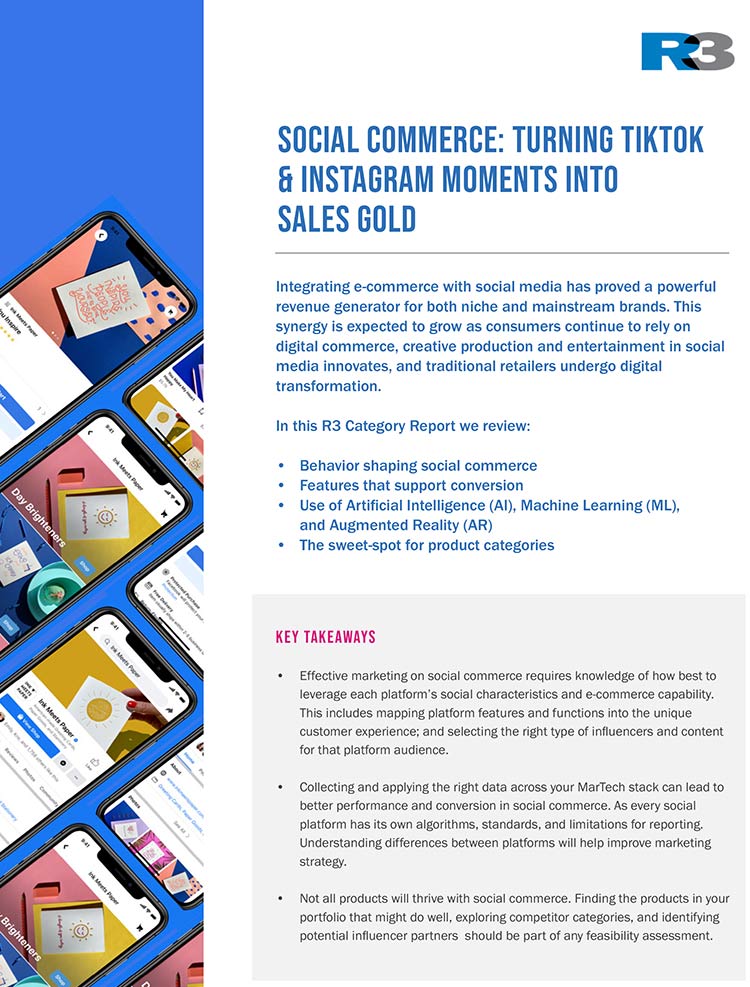Integrating e-commerce with social media has proved a powerful revenue generator for both niche and mainstream brands.
This synergy is expected to grow as consumers continue to rely on digital commerce, creative production and entertainment in social media innovates, and traditional retailers undergo digital transformation.
In this R3 Category Report we review:
- Consumer behavior shaping social commerce
- Platform and app features that support conversion
- Use of AI, Machine Learning (ML), and Augmented Reality (AR)
- The sweet-spot for product categories
Key Takeaways
- Effective marketing on social commerce requires knowledge of how best to leverage each platform’s social characteristics and e-commerce capability. This includes mapping platform features and functions into the unique customer experience; and selecting the right type of influencers and content for that platform audience.
- Collecting and applying the right data across your MarTech stack can lead to better performance and conversion in social commerce. As every social platform has its own algorithms, standards, and limitations for reporting. Understanding differences between platforms will help improve marketing
strategy. - Not all products will thrive with social commerce. Finding the products in your portfolio that might do well, exploring competitor categories, and identifying potential influencer partners should be part of any feasibility assessment.

